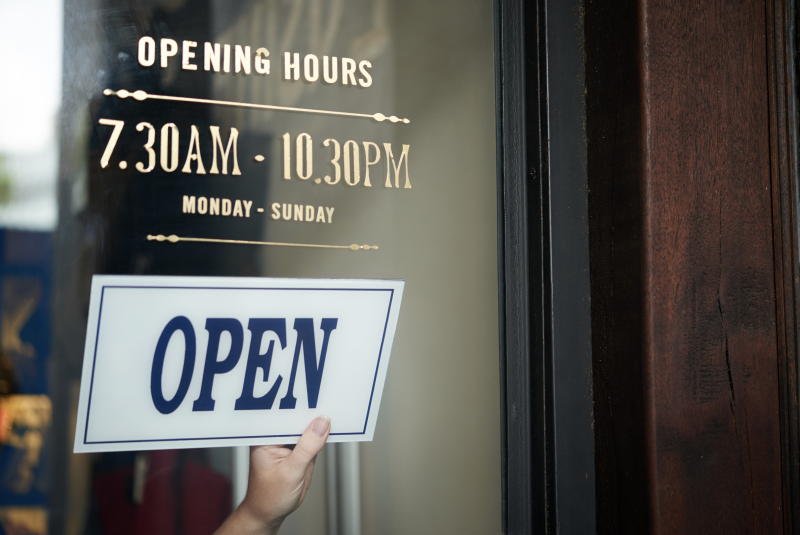
Originally published in 2010
Why should I lift at your gym, or hire you as a personal trainer? Why should I send my kids to your speed school or buy something off of your website?
Bottom Line: As a consumer, I want to know why you and your business is the right decision for me and my money.
Let’s be honest here, while there are always some vocational aspects behind the work that we do…passion for the industry, serving others, saving the world, etc., the real reason why we are in business is to make money. We understand that if our business is successful, our standard of living can improve. If our business is failing, then it is more difficult to put food on the table and gas in the car. This is especially true for those of you who operate your own business. If you don’t have paying customers then your business has no revenue. No business revenue means no household income. No household income means that you and your family cannot meet basic needs.
MORE: Grow Your Gym with the Thank Up Strategy
I don’t want to paint a grim picture here, however, I constantly see small strength and fitness operations open and quickly fail because someone was attempting to fulfill a lifetime dream of owning a gym and ignored some very basic principles of owning and operating a small business. Your passion for the industry and your dedication to your dream cannot alone generate a positive gross margin. You must study your market, know who your competitors are, differentiate yourself, execute well, and maintain flexibility in order to win.
Let’s enter the realm of the hypothetical and say that you own a small private gym and briefly walk through some very basic, yet critical exercises that you must complete in order to be successful. Please understand, there are literally hundreds of books that you can read that will go into far more detail than this article. My goal is to simply get you started thinking more holistically about your business and executing your dream in a way that might prevent it from becoming a nightmare.

Image credit: Dinis Tolipov © 123rf.com
General Market Analysis
Conducting a general market analysis can be a relatively simple exercise, however, it is a process that cannot be ignored. The critical questions are: What are the current resident demographics of the area where your gym is located? Who is your desired customer and do they live within driving distance of your gym? What is important to the customers in your area? If athletic performance is how you are positioning yourself, what are the most popular sports in town? My advice is that you start talking to people in the community. This includes speaking to coaches, trainers, other gym owners, business people, athletes, or anyone who can give you some insight in regards to what the needs of the area are. If you position yourself as the best answer to the needs of your customers/community, then you have a significantly better chance of succeeding than if you are merely attempting to guess at what your gym should be.
Know Your Competitors
What does the competitive landscape look like for your business? How many gyms are in the area? Are they privately operated or part of a large chain? Who is winning and why are they winning? These are all questions that you absolutely need to ask when formulating your business plan. Many gym owners spend a considerable amount of time comparing their physical plant (building) and equipment with their competitors. This, of course, is important. However, I would strongly suggest that you also spend real time finding out who both operates and trains at your competitors’ gyms as well. For example, if you currently own the market on speed training and a competitor hires a trainer who is Parisi certified, then it might be a very good idea to watch this particular competitor very closely. They have now become a viable threat to your market share and it is your job to act in a way that solidifies your gym’s value to your customers so they don’t defect. Know your competition. It is as relevant in business as it is in sports.
Differentiate Yourself
To put it simply, what are you going to do so that customers choose your gym over someone else’s? If you are too generalized, then you are a commodity and can only compete on pricing. Which, by the way, is very hard to do especially if your competition is a large commercial chain. If you are too specialized, then your gym will only appeal to a limited amount of customers which may or may not exist in your area. This is where the data that you collected in the first two tasks (general market analysis and knowledge of your competitors) really comes into play and starts working for you. Are you going to choose to create a new market and do something altogether different than your competitors, or can you effectively compete head-on by doing a better job than your competitors in the same market and force their customers to defect to you? These are the stressful decisions that keep the business owner/operator up at night…wondering if the decisions you make will lead your business to success or failure. These decisions are the very guts of your business strategy.
Execute Well
Are you consistently doing what you say you are going to do? How would you rate the internal capabilities of your business? Truth be known, execution is nothing more than discipline and in order to be successful, you and your organization must make discipline a huge part of your culture. Are you truly focused on what must be done on a daily, weekly, monthly and yearly basis? Are you successfully managing the people who work for you and having the hard conversations with your staff when you have experienced a service failure? Do you have the discipline to reinvest profits back into your business so that you can continue to grow? The responsible business owner understands that frequently asking yourself these questions requires a profound dedication to confront the true realities of the business. You must be very reflective and honest. One final note on execution: if the organization cannot keep the promises it makes to itself, it is never going to be able to keep the promises it makes to its customers, and we all know what that quickly translates into.
Maintain Flexibility
Markets change all the time and you must possess the flexibility to change with them. Please understand that the needs of your customer base can shift very, very quickly and you must have the agility to shift with them. Don’t ever assume that the results of today are guaranteed tomorrow. The very best gyms/businesses are in a constant state of reinvention - adding to their product line, upgrading their equipment, bringing on more qualified staff, and entering into new markets. What changes are going on in the community that are going to require you to adjust your business model? What industry trends do you need to embrace and which ones do you need to ignore? An open mind is required to keep you open for business.
A mentor of mine once told me that survival in business is largely dependent on the paranoia of the business leader, and while I realize just how negative this might sound, I truly believe it to be true. You are not allowed to be comfortable. You cannot afford to be satisfied. Learn from your mistakes, question everything, know your market and execute, execute, execute. There is always great risk involved with any business venture, but there is also tremendous opportunity. Prove to me, the consumer, that your business will meet my needs and I will absolutely reward you with my loyalty and my money. In turn, I will ensure your success.
Header image credit: Hermin Utomo © 123rf.com











1 Comment